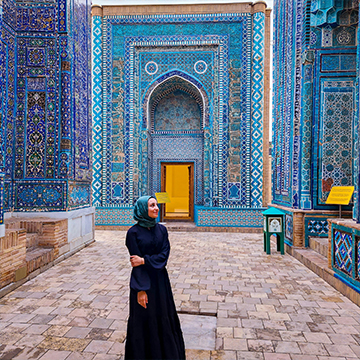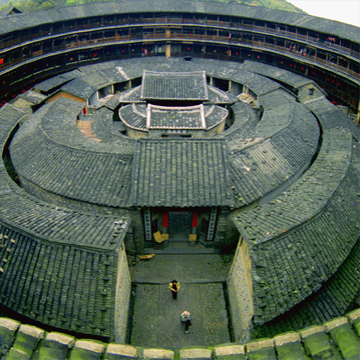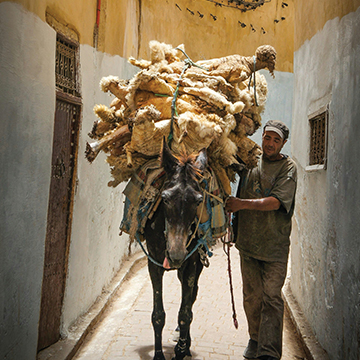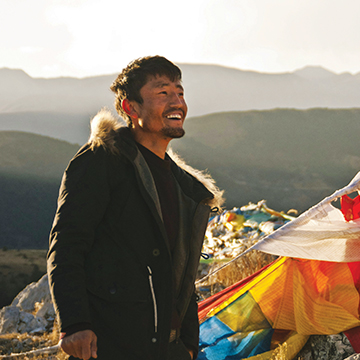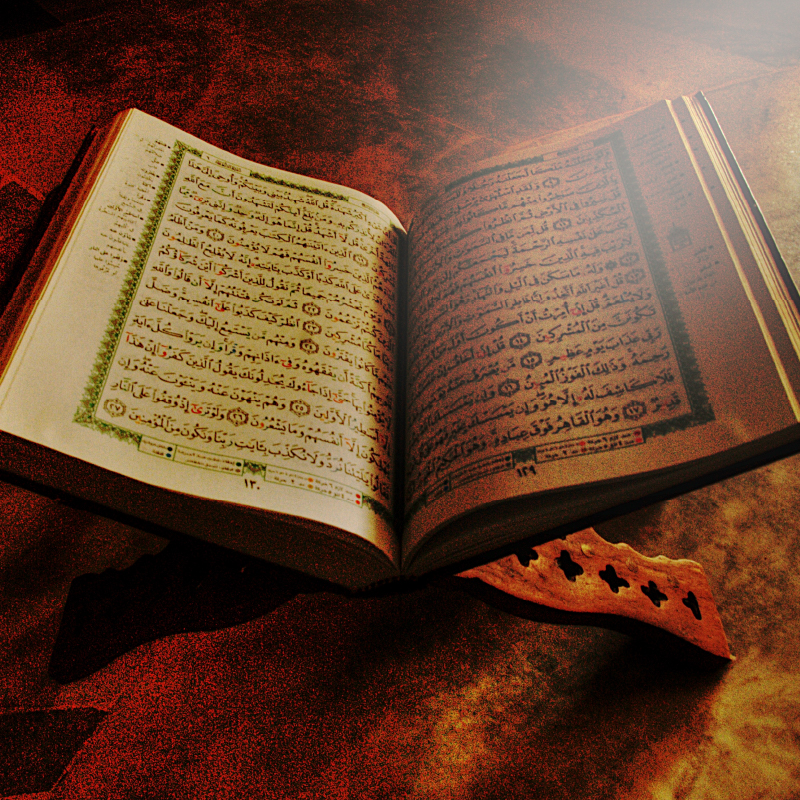30 Days of Prayer for the Muslim World

This month, we encourage readers to practice devotional prayer-reading. Start by reading a passage of Scripture, then meditate repeatedly on one verse, turning it into a prayer and actionable response. This month, we reflect on how to fulfill the Great Commission in our daily lives.
The prayer materials for March 1 to March 31 are reprinted with permission from 30 Days of Prayer for the Muslim World, published by OM (Operation Mobilization). We extend our heartfelt gratitude for their generosity.
We’re Actually Not That Far Apart

Mission Pathway once took a team to visit a missionary who has served among Muslim communities for 20 years. This missionary shared that nearly 99% of Muslims he encountered who had the opportunity to read the Bible ultimately chose to follow Christ. Islamic scholar David Garrison also observed during interviews that when Muslims come into contact with the Bible, they often realize that Muhammad cannot compare with Jesus, as Muhammad never claimed to be God or Savior. Once Muslims understand that Jesus is the path of salvation provided by Allah, Muhammad's significance diminishes in comparison.
In fact, Muhammad often referenced Jews and Christians (Quran 5:82), seeing himself as the final prophet in the monotheistic tradition shared by Judaism and Christianity. He regarded these three faiths as belonging to the "People of the Book" (Ahl al-Kitāb), a group uniquely favored by the Creator.
Therefore, Christianity and Islam are not far apart. We share common ground and can explore Jesus’ identity and salvation through rational and heartfelt dialogue.

Islam emerged in the polytheistic context of the 7th-century Middle East, evolving into a monotheistic religion. This foundation of monotheism establishes certain commonalities between Islam and Christianity, despite differences in their understanding of God and how that understanding is expressed.
The Quran holds Jesus in high regard, considering Him equal to Muhammad in status. His birth is viewed as a miracle of Allah, bringing the Gospel to humanity, and He is described as both a messenger of Allah (Quran 3:48-49; 57:27) and a prophet (Quran 19:31). In discussions with Muslims, we can reference Quranic verses about Jesus while introducing his teachings in the Bible, helping to highlight connections and distinctions.
The Quran acknowledges the Bible as divine revelation, providing guidance to specific prophets and nations—for example, the Torah to Moses, the Psalms to David, and the Gospel to Jesus. These Scriptures, derived from the Bible, have played an important role in Islam and can serve as a bridge for mutual understanding.
Though there are differences between Christianity and Islam, respectful and rational dialogue can help bridge the gap. With such an approach, the distance between us becomes much smaller.


The Quran (5:13-15) suggests that many monotheists in the 7th century deviated from the truth by altering and distorting the Bible. However, this claim is difficult to substantiate. The Bible was completed centuries before the Quran, and if it had been corrupted prior to Muhammad’s time, it would contradict the Quran’s clear affirmation of the Bible as God’s Word (Quran 18:27; 5:68; 6:115; 10:64) and its instruction to obey it. This contradiction undermines the claim.
If changes to the Bible occurred after Muhammad’s time, such alterations would have required coordinated efforts by Christian leaders across the globe. Such an event would surely be documented in history, yet no such records exist. Moreover, the Bible strictly forbids additions or deletions, making it impossible for Christians to reach consensus on altering it.
Some Muslims speculate that those in authority deliberately distorted the Bible during its compilation. However, this scenario is equally implausible. Apostolic letters were widely circulated among churches in different cities. Any attempt to alter the text would have required recalling all copies—a task no one could have achieved at the time. In fact, by the 4th century, when Christianity still lacked a central governing body, the Bible already had thousands of copies in existence, making comprehensive revision unfeasible.
The Old Testament was completed between the 12th and 2nd centuries BCE. Its canon was established before the 1st century CE. The New Testament was completed between the mid-1st and late 1st centuries CE. Its canon was established in the 4th century CE.
The Quran was completed in the 6th century CE. Its compilation and editing were finalized by 650 CE.
The Quran (4:157-158) claims that Jesus was not crucified but that it only appeared so to people. However, historical evidence strongly supports that Jesus did die on the cross. This point is nearly undisputed in academia. Even prominent Muslim scholar Reza Aslan acknowledges the crucifixion as a historical fact.
The earliest records of Jesus’ death on the cross emerged shortly after the event, based on eyewitness testimony. Within a few years, reports of Jesus’ crucifixion came from Christians, Jews, and Romans. Over the next century, consistent testimonies from diverse sources corroborated this event. Jewish historian Josephus and Roman historian Tacitus both documented it in the late 1st century, further affirming the historical reality of Jesus’ crucifixion.

The Quran explicitly denies Jesus’ divinity, marking a major divergence from core Christian doctrine. Islam rejects the divinity of Jesus to emphasize Allah’s absolute oneness, as its foundation aimed to combat polytheism.
However, Christianity also worships one true God, not three independent gods. The Bible provides clear revelation about Jesus’ divinity, and misunderstandings of biblical doctrine by Muslims can be addressed through rational discussions.
The Quran claims that Jesus never called Himself God and that Christian theology was shaped later under the influence of Paul and Roman polytheism (Quran 5:116-117). However, the Bible clearly records Jesus referring to Himself as God, commanding the same faith in Him as in the Father, and declaring Himself the initiator of salvation. He presented Himself as God’s manifestation on earth, referred to Himself with the Old Testament’s divine name, “I Am,” and accepted His disciples’ recognition of His divinity. These passages can be shared with Muslims to help dispel misunderstandings.
From an Islamic perspective, acknowledging Jesus as God implies polytheism, which contradicts Islam’s strict monotheism. Muhammad’s rejection of Jesus’ divinity is therefore understandable.
In reality, the Quran frequently expresses affirmation and goodwill toward Jesus, Christianity, and Christians. In some ways, Islam is closer to Christianity than other religions.
Over the next 30 days, as we pray for Muslims, may we remember that the distance between us and them is not insurmountable. The key lies in whether we are willing to build friendly relationships through love, respect, and sincerity, living out the core values of our Christian faith and leading them to Jesus.











